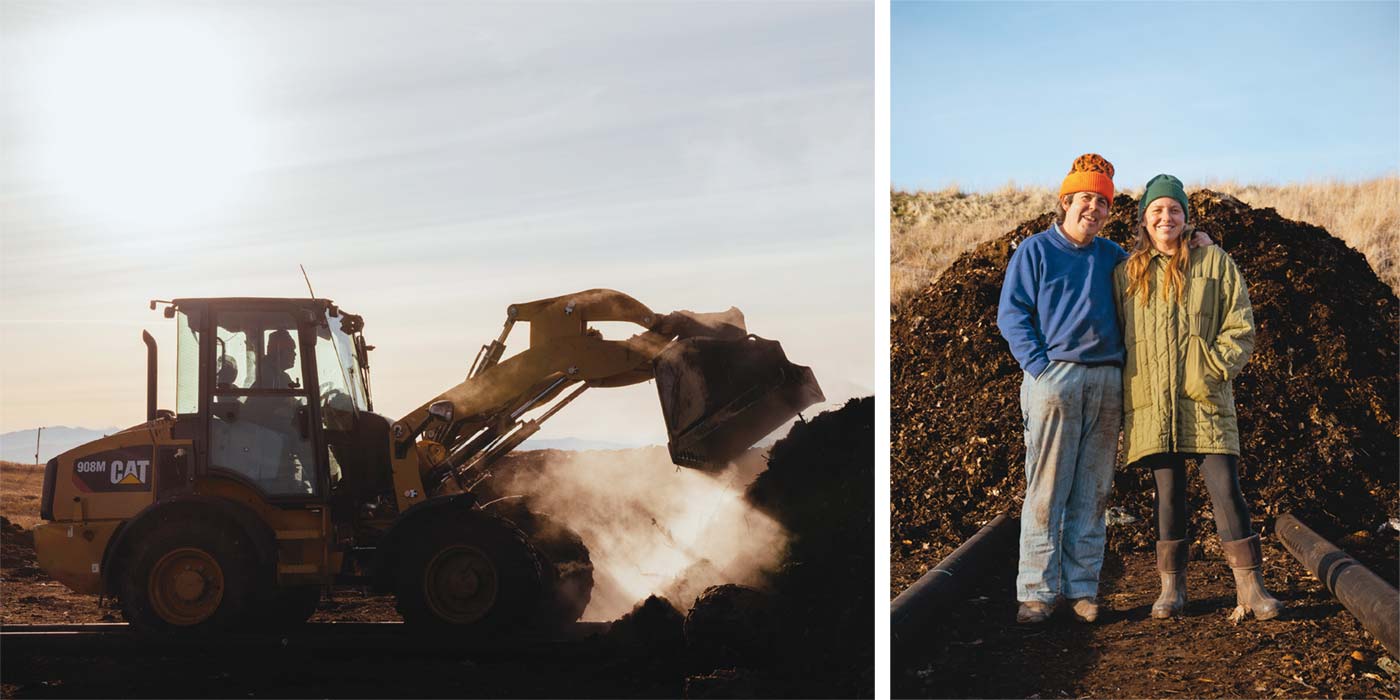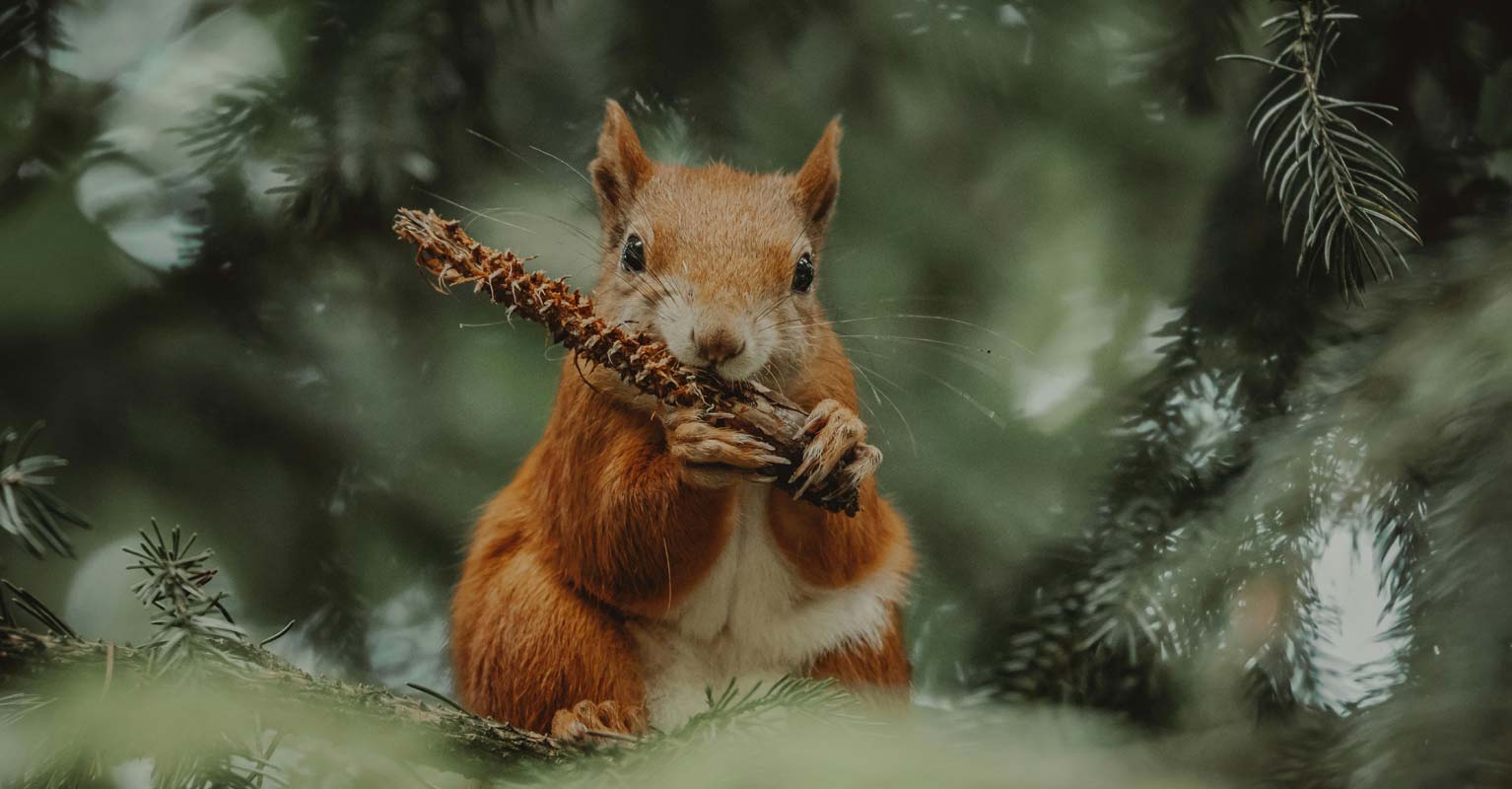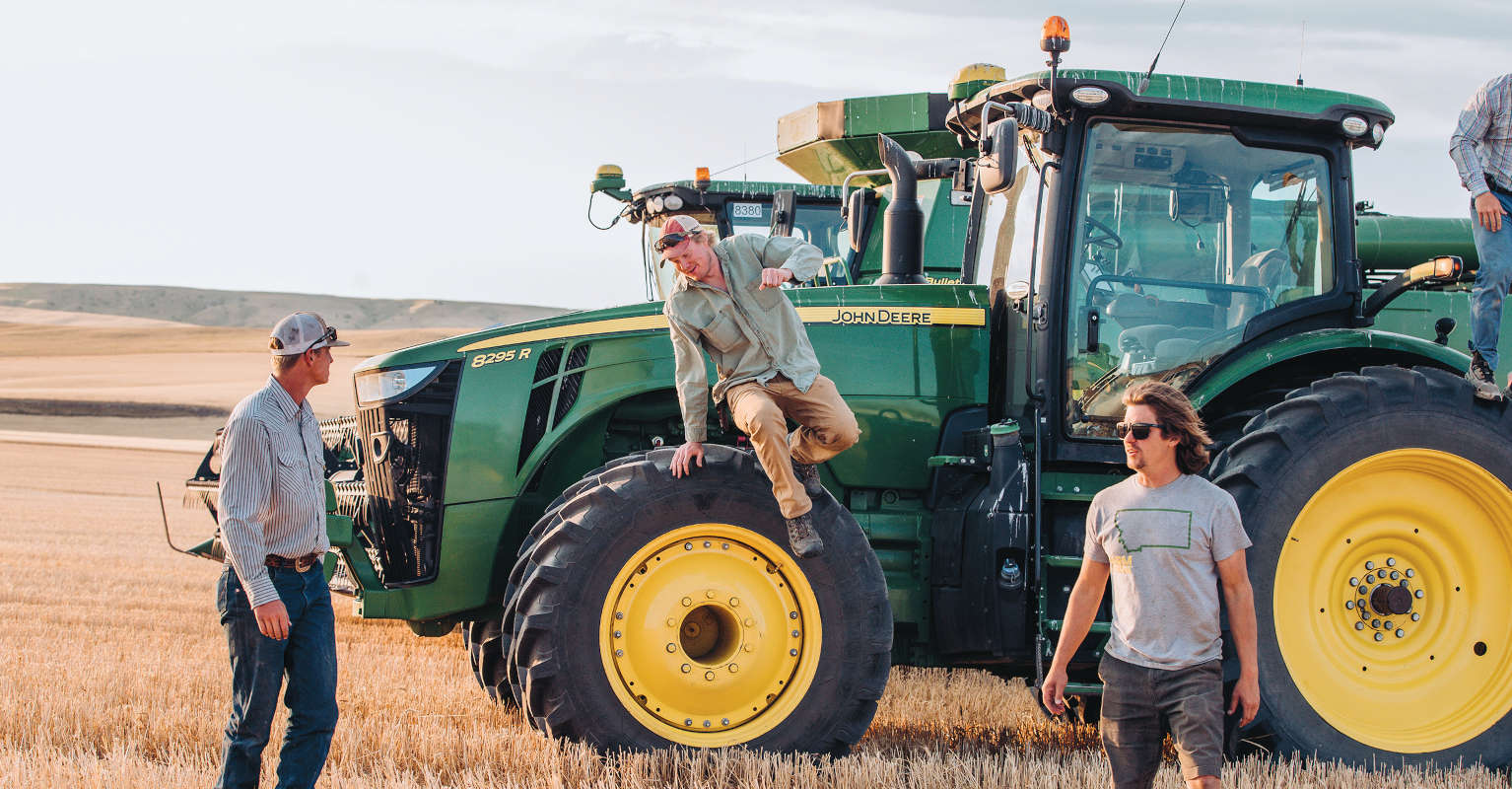Composting is a sustainable alternative to throwing food waste in the landfill that produces “black gold” soil that returns nutrients to the land.
Composting in Bozeman
The average American household wastes roughly 40 percent of its food every year, according to a study from the American Journal of Agricultural Economics. That is quite literally money in the trash, and it’s hurting our environment.
“We need to eat. So, we buy this food. Now we own its waste and we need to dispose of it responsibly,” says EJ Hook, director of facility services at MSU.
When Hook says “responsibly,” he means don’t throw it in the landfill.
When you throw your food waste into a trash can, “you’re throwing away one of the most valuable resources we have because it has all of the nutrients from the soil it came from,” he says.
The alternative? Composting. Composting has become increasingly popular in the last several years with the growing concerns over climate change and urbanization. Although not everyone is keen on watching their own food decompose, the era of out-of-sight, out-of-mind isn’t working like it used to. Luckily, Bozeman residents have multiple composting options, both hands-on and hands far, far away.
“You took resources from the land, you have to get it back to the land,” Hook says.
Luckily, you can compost in your own backyard. The science is simple: Combining a nitrogen source (food waste) and a carbon source (bulking agent) creates a food source for microbes, which are the magical little critters that eat away at the food and break it down. This process creates a soil that is densely packed with nutrients and has excellent water retention.
Unfortunately, this science doesn’t work in a landfill. The bulking agent can’t be couches and petroleum-based plastics. Composting is an aerobic process, which means it needs oxygen to work. Landfills have many layers, which cuts off airflow to the waste. Instead of decomposing at a natural pace, the food breaks down at a brutally slow pace and in the process releases methane, a harmful greenhouse gas. This same thing will happen if a compost pile doesn’t get turned. It could take years for a banana peel to decompose in a landfill, while it would take three to four weeks in a compost system.

The fact is, everyone is capable of composting, but the Environmental Protection Agency estimates that only 4.1 percent of America’s food waste was composted in 2018.
Depending on how much space you have, composting could be as simple as creating a long, thin pile in your backyard of food waste like banana peels, eggshells, potato peels, and cut-up bits of vegetables.
Add a bulking agent such as grass trimmings or leaves and frequently turn it with a shovel to provide ample aeration. Composting bins or tumblers are also an option; they’re usually more convenient and take up less space than piles. Bins can be purchased relatively inexpensively at most home improvement stores.
One benefit of home composting is that you get to witness your own food waste come full circle from waste to a usable organic material.
Karen Kitchen, a longtime Bozeman resident, has been composting for more than fifteen years in her backyard.
“When you’re sifting through your compost piles and get down to that black soil, it’s really rewarding,” she says.
Composting at home gives you full control of your household waste and it doesn’t drive away in a truck or get shipped out of state like most recyclables. Plus, you get a usable soil—for free.
The cons of composting at home are this: First, if your compost freezes, it’s not composting. If you want to be actively composting year-round in Montana, you need a space inside to store your bins.
Kitchen says she continues to throw her food waste on her frozen compost piles, but just allows the compost to freeze during the winter and resumes her process in the spring.
Second, you may attract pests, or bears. There are ways to maneuver this issue, but it’s something to keep in mind. Composting also requires time and effort. If a compost system is ignored, you won’t get the results you’re hoping for.
The other component to keep in mind is that some products are difficult to compost at home. Meat, bones, and dairy are examples. They create more odor and therefore attract more pests. Compostable takeout containers and utensils are another tricky one. These products, such as the ones sold by Eco Montana, are excellent, but they require high heat to compost properly.
One solution for these challenges is to utilize a local industrial composting company like Happy Trash Can or YES Compost, both of which have systems capable of breaking down more difficult products. These companies make composting very hands-off for homeowners. For a small monthly fee, you put your food waste in a five-gallon bucket and every other week stick it on the curb.
YES Compost, a Bozeman-based company since 2018, provides residential and commercial composting services using a vermicompost process, meaning they create delicious meals for Red Wiggler compost worms.
“Managing a herd of 500,000 worms is complicated,” says Karl Johnson, owner of YES Compost.
After the food waste is composted traditionally, Johnson adds a portion of it to the worm bins. These worms have gizzards that are capable of grinding their food into fine particles, transforming their excrement into a nutrient-packed “black gold” with a powdery texture, like coffee grounds. “Our hope is that we can replace the need for salt-based fertilizers with worm castings,” Johnson says. Worm castings are an excellent alternative to chemical plant food, especially for houseplants and finicky vegetables that may need more than just a nutrient soil.
Because of the vermicomposting, YES Compost is able to offer clients a traditional compost product as well as worm castings for use in gardens and homes.

Choosing between different composting methods depends on the final product you desire. If you want worm castings for houseplants and top dressing, then vermiculture is the way to go; if you’re just after a nutrient-rich soil for outdoor vegetable gardens, then traditional composting may be for you. Either method diverts food waste, and that’s the ultimate goal.
Owners of Happy Trash Can, Ryan Green and Adrienne Huckabone, create a more traditional compost product and are dedicated to diverting as much of the valley’s food waste as possible.
“Organic waste is low-hanging fruit for a municipality to combat climate change,” Green says. “No pun intended … low-hanging banana peel,” Huckabone adds.
However, Bozeman doesn’t have a municipally run compost system. For the last several years Happy Trash Can has been working with the City of Bozeman to find solutions for residential composting and larger-scale food waste streams including restaurants and the university. MSU used to compost its own waste. The program was led by Logun Norris, recycling coordinator at MSU. In their first year of composting, between July 2016 and June 2017, he said they diverted over 57,000 pounds of food waste. One year later they had over 170,000 pounds to divert. “We ran out of space,” Norris says.
In 2018, MSU partnered with the City of Bozeman. Now, the city picks up all of MSU’s food waste and takes it to Bozeman Site Services, where Happy Trash Can’s compost yard lives. Th e partnership has allowed MSU to divert nearly 1.5 million pounds of food waste from the landfill.
Currently, Happy Trash Can is hauling and composting over one million pounds of food waste annually. Their finished compost then goes back to its residential subscribers for gardening use and the rest is sold to local farmers and gardeners. It’s a high-quality product offered at an affordable rate. Plus, it benefits the community by maintaining Bozeman’s long-standing farming culture by contributing to the production of healthy crops that weren’t grown on synthetic fertilizers.
“With development we’re losing a lot of agricultural land so we need to work to maintain the existing land,” Green says, adding that disposing of your own food waste also makes people more conscious of just how much waste they are creating.
“Composting is great, but reducing food waste is the goal,” Green says.
Composting is a step in the right direction for creating a more sustainable food culture in Bozeman. Whether you would like to see the process come to fruition in your backyard or pay a small fee to have the professionals carry your compost away in a five-gallon bucket is up to you.




